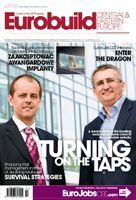Ewa AndrzejewskaWhat do developers dream of, and what gives them sleepless nights? What turns their dreams into nightmares... and what enlivens even the most boring debate? The obvious answer is: money! Have the banks finally started to loosen their purse strings? In early April, Globe Trade Centre concluded a loan contract worth EUR 20 mln with Berlin Hyp Bank. The company is to use the money to develop the third stage of the Platinium Business Park, which began last autumn. When asked about the significance of the deal, experts acknowledged that the transaction was a major breakthrough on the credit market following a bleak winter on the Vistula river. In mid-June, the temperature was raised further heated up by German bank Eurohypo and Kielce-based developer Echo Investment, who announced that they had agreed a loan contract of EUR 50 mln for the re-financing of the Park Postępu office complex in Warsaw. Real estate operators who had been in a cold sweat for more than six months c




























































